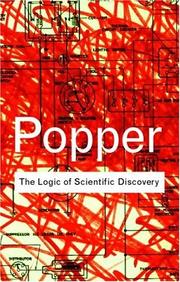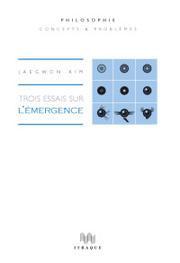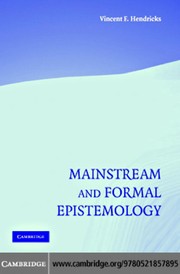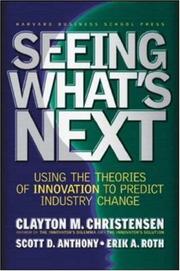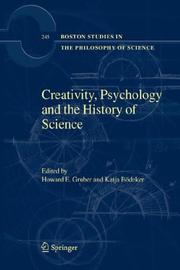(redirected from ReadingNotes.Popper)
The Logic of Scientific Discovery by Karl Popper - ISBN 0415278449 - Routledge 2002 (edition 11 afer the original 1959 edition)
Motivation
Karl Popper is a constant reference in epistemology and history of science and this is one of this major work thus had to be read.
Reading
Opening with the brilliant quote from Novalis Hypotheses are nets: only he who casts will catch.
PART I Introduction to the Logic of Science
- 1 A Survey of Some Fundamental Problems
- 2 On the Problem of a Theory of Scientific Method
PART II Some Structural Components of a Theory of Experience
- 3 Theories
- 4 Falsifiability
- 5 The Problem of the Empirical Basis
- 6 Degrees of Testability
- 7 Simplicity
- "The epistemological questions which arise in connection with the concept of simplicity can all be answered if we equate this concept with degree of falsifiability." (p126, section 43)
- "Simple statements, if knowledge is our object, are to be prized more highly than less simple ones because they tell us more; because their empirical content is greater; and because they are better testable." (p128, section 43)
- 8 Probability
- "so long as the binomial formula is derivable within the system, probability statements will not be falsifiable. Probability hypotheses do not rule out anything observable; probability estimates cannot contradict, or be contradicted by, a basic statement; nor can they be contradicted by a conjunction of any finite number of basic statements; and accordingly not by any finite number of observations either." (p181, section 65)
- 9 Some Observations on Quantum Theory
- "I shall not question the correctness of the system of the mathematical formulae of quantum theory. I shall only be concerned with the logical consequences of its physical interpretation which is due to Born." (p211)
- note *1 "I have not changed my mind on this point, nor on the main points of my criticism. But I have changed my interpretation of quantum theory together with my interpretation of probability theory. My present views are to be found in my Postscript where I argue, independently of the quantum theory, in favour of indeterminism." (p211)
- "It is the task of the natural scientist to search for laws which will enable him to deduce predictions. This task may be divided into two parts.
- On the one hand, he must try to discover such laws as will enable him to deduce single predictions (‘causal’ or ‘deterministic’ laws or ‘precision statements’).
- On the other hand, he must try to advance hypotheses about frequencies, that is, laws asserting probabilities, in order to deduce frequency predictions." (p243, section 78)
- "The laws we find are always hypotheses; which means that they may always be superseded, and that they may possibly be deduced from probability estimates." (p244, section 78)
- "The lesson of all this is that we should try to find strict laws - prohibitions - that can founder upon experience. Yet we should abstain from issuing prohibitions that draw limits to the possibilities of research." (p247, section 78)
- 10 Corroboration, or How a Theory Stands up to Tests
- "Theories are not verifiable, but they can be ‘corroborated’" (p248)
- "In appraising the degree of corroboration of a theory we take into account its degree of falsifiability. A theory can be the better corroborated the better testable it is. Testability, however, is converse to the concept of logical probability, so that we can also say that an appraisal of corroboration takes into account the logical probability of the statement in question." (p268, section 83)
- "The use of the concepts ‘true’ and ‘false’ is quite analogous to the use of such concepts as ‘tautology’, ‘contradiction’, ‘conjunction’, ‘implication’ and others of the kind. These are non-empirical concepts, logical concepts." (p274, section 84)
- "The quasi-inductive process should be envisaged as follows.
- Theories of some level of universality are proposed, and deductively tested; after that,
- theories of a higher level of universality are proposed, and
- in their turn tested with the help of those of the previous levels of universality, and so on.
- The methods of testing are invariably based on deductive inferences from the higher to the lower level;*1
- on the other hand, the levels of universality are reached, in the order of time, by proceeding from lower to higher levels." (p276, section 85)
- "Those theories which are on too high a level of universality, as it were (that is, too far removed from the level reached by the testable science of the day) give rise, perhaps, to a ‘metaphysical system’." (p277, section 85)
- this somehow gives a maximum theoretical speed limit to the evolution of science, thus a "speed of epistemology"
- interesting visualization of "picture or model of this quasi-inductive evolution of science" (p277-278, section 85)
- "Bold ideas, unjustified anticipations, and speculative thought, are our only means for interpreting nature: our only organon, our only instrument, for grasping her. And we must hazard them to win our prize. Those among us who are unwilling to expose their ideas to the hazard of refutation do not take part in the scientific game." (p280, section 85)
- "Even the careful and sober testing of our ideas by experience is in its turn inspired by ideas: experiment is planned action in which every step is guided by theory." (p280, section 85)
- "Science never pursues the illusory aim of making its answers final, or even probable. Its advance is, rather, towards an infinite yet attainable aim: that of ever discovering new, deeper, and more general problems, and of subjecting our ever tentative answers to ever renewed and ever more rigorous tests." (p281 section 85)
APPENDICES (part of the original edition)
- i to vii, page 283 to 308
- skimmed through, technical and chronologically a bit complex for somebody who is not used to Popper's work
NEW APPENDICES (addition to 1959 edition, mainly notes and articles from 1933 up to 1959)
- i to xii, page 309 to 488
- skimmed through too, same reasons
Overall remarks and questions
- propositions are called "section" and are numbered (from 1 to 85) in order to be used for easier references. Page number are thus here followed by the corresponding section.
- the book is 545 pages long but the original content about 250 pages and in this I would estimate less than 200 pages without the footnotes
- this makes a very complete volume, yet an intricate web of thoughts
See also
(:new_vocabulary_start:)
insuperable
anew
surreptitious
ascription
smeared
impinge
mettle
protasis
apodosis
(:new_vocabulary_end:)
Back to the Menu
Categories
Other read books linking to the TheLogicOfScientificDiscovery page :
Back to the Menu
 Fabien Benetou's PIM
Fabien Benetou's PIM






